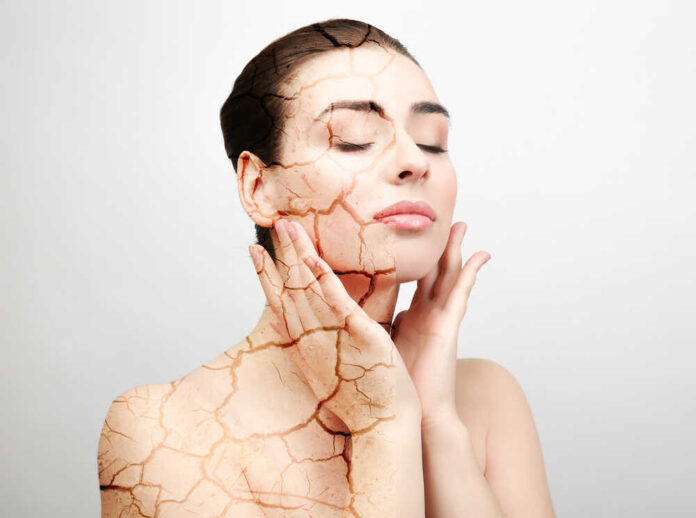
Dry skin can be a frustrating and uncomfortable issue to deal with. And if it’s not treated properly, it can lead to other skin problems such as itching, cracking, and even bleeding.
But with the right care, you can soothe and nourish your skin back to a healthy, glowing state.
Here are 7 tips to help you combat dry skin.
Hydrate from the Inside Out
The first step to combating dry skin is to make sure you are properly hydrated. When you’re dehydrated, your skin can become dry, tight, and flaky, making it difficult to moisturize effectively.
Drinking more water can help to keep your skin hydrated from the inside out. Aim for at least 8 glasses of water per day and increase your intake if you are exercising or in a hot climate.
Avoid Hot Showers and Baths
While a hot shower may feel good in the moment, it can strip your skin of its natural oils, leaving it feeling dry and tight. Instead, opt for lukewarm showers and baths, and limit your time in the water to help reduce the risk of skin damage.
After you get out, gently pat your skin dry with a soft towel rather than scrubbing it dry, as your skin is more vulnerable to damage when wet.
Use a Gentle, Fragrance-Free Moisturizer
One of the best ways to combat dry skin is to keep it moisturized. Look for a gentle, fragrance-free moisturizer that is free of harsh chemicals and alcohols.
Apply it to your skin immediately after showering or bathing while your skin is still damp. This will help lock in the moisture and keep your skin hydrated.
Exfoliate Regularly
Exfoliating your skin involves scrubbing away dead skin cells, which can leave your skin feeling smoother and more hydrated. Look for gentle, physical exfoliators, rather than harsh, chemical ones, as these can be damaging to dry skin. Additionally, make sure to limit exfoliation to once or twice a week, as over-exfoliating can strip your skin of its natural oils and make dryness even worse.
Use a Humidifier
Dry air can pull moisture away from your skin, leaving it feeling dry and tight. A humidifier can help to add much-needed moisture back into the air, which can help to keep your skin hydrated and healthy.
Make sure your humidifier is cleaned regularly to avoid the growth of mold and bacteria, which can be harmful to your skin and airways.
Be Mindful of Your Skincare Habits
If you are having an issue with your skin, it may help to take a closer look at your skincare habits.
● Have you started using any new products recently?
● Have you been washing your hands more frequently than usual?
● Are you using any soaps with fragrances or harsh chemicals?
● Are you scrubbing your skin too roughly?
● Have you spent much time in the sun recently?
Sometimes small changes to your routine can have dramatic effects on your skin. By paying closer attention, you may be able to notice what is causing your issue and what needs to be changed.
When to See a Doctor or Dermatologist
While many dry skin issues can be treated at home with lifestyle changes and over-the-counter products, sometimes it’s necessary to seek professional help. If your skin is extremely dry, itchy, or painful, or if you notice any unusual changes in the appearance of your skin, it’s a good idea to make an appointment with a doctor or dermatologist.
Your doctor or dermatologist can help to diagnose the underlying cause of your dry skin and recommend appropriate treatment options, including prescription creams, ointments, or medications. They can also provide personalized skincare recommendations and help you develop a routine that’s right for your skin type and concerns.
If you’re experiencing persistent dry skin, it’s important to take action and seek help, rather than simply hoping the issue will go away on its own. With the right care and attention, you can restore your skin to a healthy, hydrated state and feel confident and comfortable in your own skin.






















